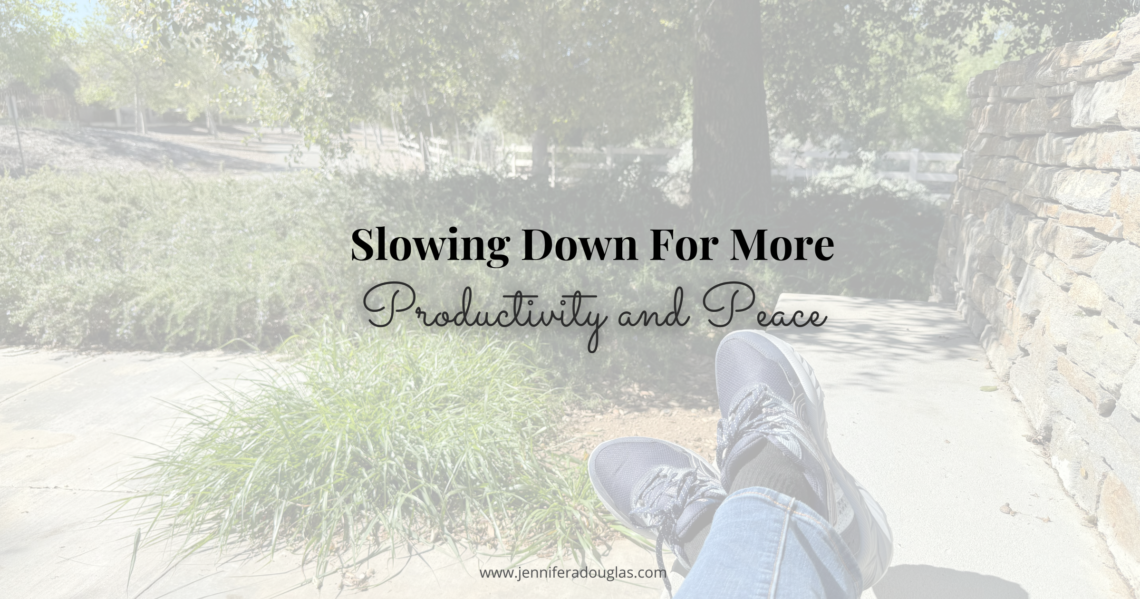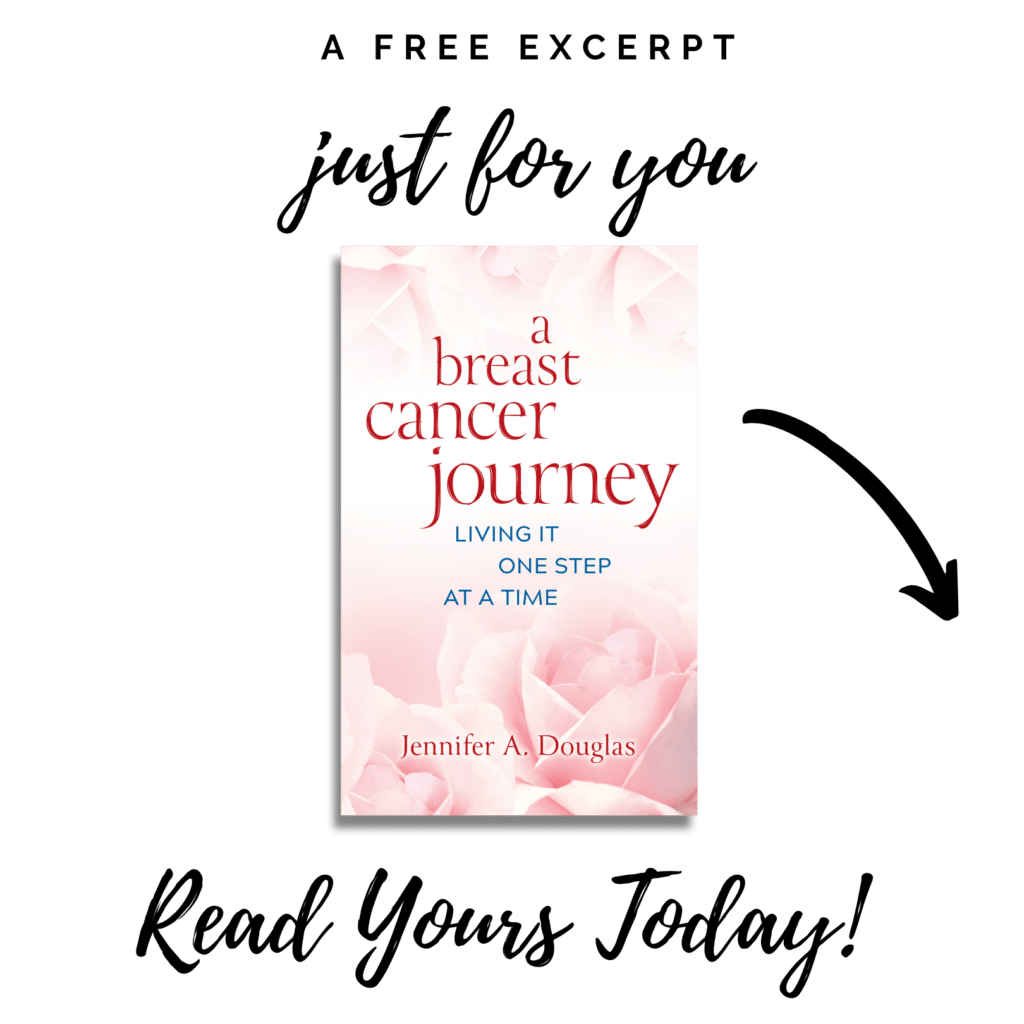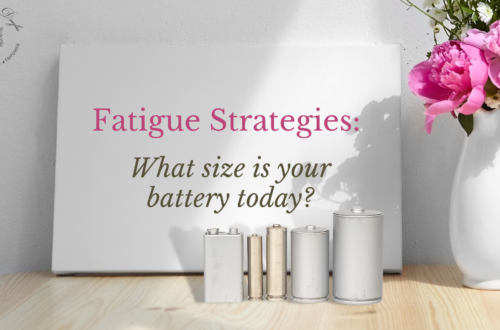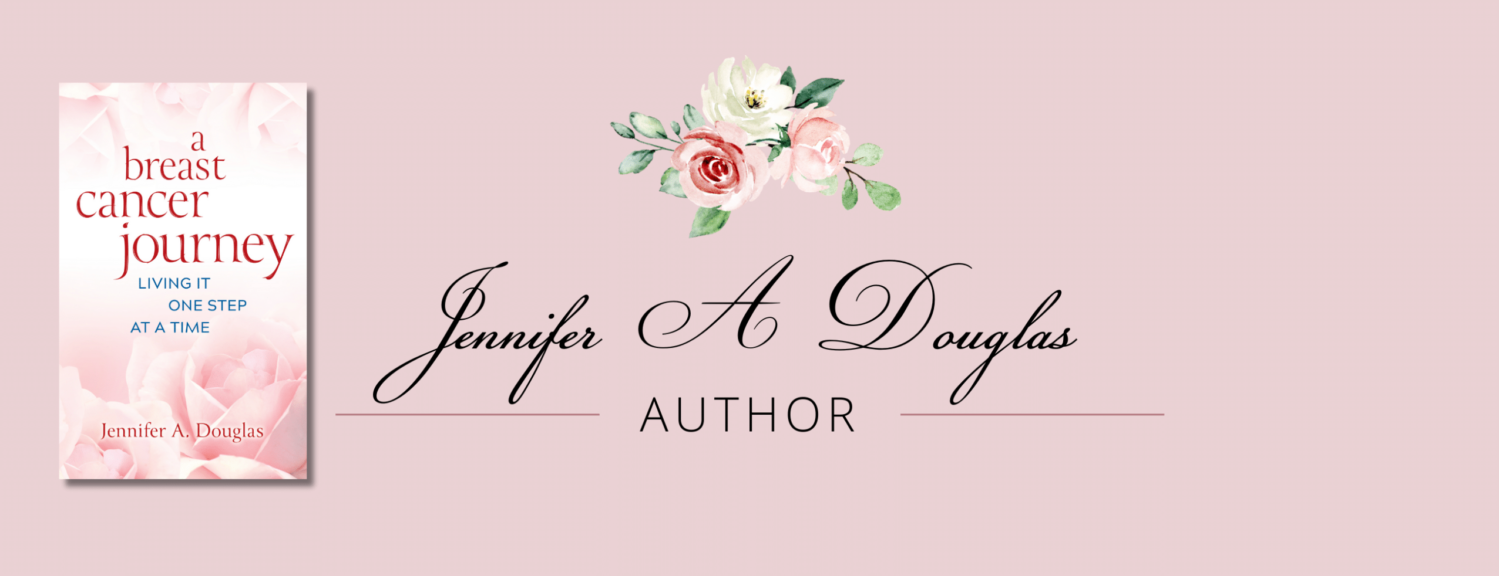
Slowing Down for More Productivity and Peace
Encouraging Reads: Slow Productivity by Cal Newport
Affiliate Disclosure: Links in this post are affiliate links. Read policies here.
I just finished Cal Newport’s book Slow Productivity: The Lost Art of Accomplishment without Burnout (affiliate link), and I was inspired. I am sitting on a bench writing as I look out to the trail and listen to the birds chirping. Usually, I write in my office with my ergonomic desk chair and pink keyboard. But instead, I’m dictating into my phone and getting distracted by the wildlife.
I’ve written a lot about feeling overwhelmed. How do we get through these challenging emotions that often come with a cancer diagnosis and linger?
Persistent Stress, Anxiety, and Notifications
I don’t recall an extended period in my life when I’ve ever felt so stressed, full of anxiety, and just the constant hum of worry. These last few years have been peppered with health and life challenges I didn’t expect. Some challenges I knew were coming, like my sons’ high school graduations, but others were a surprise.
Escaping and slowing down is hard. Our always-on apps, notifications, and expectations to respond so quickly to everything don’t help. We are dancing on the line between being productive and stressed out. Could there be a different way?
BZZZ
In a bit of irony, as I edit this post, my watch just asked me to reflect on my feelings. Is that a helpful notification or not? That tap interrupted my flow, and now I can’t remember where I was going with my train of thought.
Okay, back to the post.
Our modern proclivity to dance with “just the right” amount of productivity in a world of knowledge work requires us to think about what it means to be productive and peaceful.
I’m pretty sure that’s why Newport wrote his latest book: We all seem to be teetering on the edge.
And so here I am, sitting on a relatively secret bench off a trail, listening to the birds sing and wondering if other people will hear me dictating into the phone as they walk by. It isn’t an ideal place to write, but I want to share some of the thoughts that have been in my head after finishing this book.
Unplugging for Peace
Sometimes, I walk outside and don’t even notice the birds chirping. The thoughts in my head are far too busy, and they drown out the nature sounds. But today, I’m struck by how noisy nature is. If we pause and listen to it, there is life all around us, and it persists and doesn’t need app notifications or social media updates.
I’m dating myself, but I grew up before the Internet. When I was tired of my tiny house, I would often go for walks by myself. Neither of my parents knew where I was, but they knew I’d make it home. I didn’t have a cell phone or a pager. I just had myself and my thoughts.
Nowadays, that type of escape requires planning. We are rarely offline.
When do we unplug?
For most of us, it is never. Or perhaps in the shower.
Once a week, I usually head out on a walk to experience the quiet, birds, and nature. The longer I’m out, the more my thoughts slow down and fresh ideas come to me. Stress begins to dissipate, and a wave of peace surrounds me.
Often, during my cancer treatment and diagnosis, I’d walk the trails observing the trees as they were losing their leaves. My treatment was over when those leaves returned. The trees were regrowing, and so was I. Those peaceful moments were instrumental as I navigated my recovery during the pandemic (which was stressful and unexpected for us all).

Disconnect for Creative Productivity
Something I enjoyed about Cal Newport’s book was the encouragement that to truly be creative, we need to disconnect. Sometimes, this might mean putting ourselves in places that don’t necessarily look like the most productive environments.
He profiles several authors who had specific places they would go to write. These places were often places of solitude. Distractions were eliminated so that creativity could be cultivated.
Life seems to be moving at such a frenetic pace. We talk about well-being and how important it is to get off our screens, but do we ever really do it?
I remember a time before I had a cell phone, and now I can’t imagine a time without it.
I don’t think the phones themselves are the problem. Rather, I think it’s our relationship with them. Can we use them as tools so they can help us, or do they become devices that prevent us from ever thinking creatively on our own by offering an endless stream of distractions?
Techniques for Slowing Down
Where do you go to think to find peace and to relax? Do you have strategies that will help you slow down?
Slowing down is not a one-size-fits-all approach. It’s a personal journey that requires planning and intention. Here are some techniques and tips that have helped me remain calm, slow down, and seek a creative headspace.
- Nature walks without headphones
- Block of time on my calendar for writing
- Relaxing playlists
- Noise-canceling headphones (when the environment is noisy)
- Writing my to-dos down in my digital bullet journal
- Allocating a reasonable amount of time for these tasks on my calendar
- Planned time away and vacations
- Customizing the “focus” setting on my phone so I only get the notifications that I want
- Regular routines for bedtimes and wake-up
- Weekly date nights
- Scheduled time with friends
- Being mindful of what energizes me and what drains me
- Scheduling in buffer time between activities
- Reading fiction books
Finding Our Balance in Productivity
We all need to find ways to slow down, relax, breathe, fresh air and escape the fast pace.
The lizards have come out to join me on the bench, enjoying the sun and the warmth.
Thanks to my iPhone, I was able to dictate my thoughts and then head back home to edit the post. The technology enhanced my time outside, making it easy to capture my thoughts and bring them home. The time felt nourishing and refreshing.
Newport also offers many strategies in his book Slow Productivity (aff. link) to help us envision new ways to be effective without exhaustion. He offers us a vision for productivity without stress, hurry, and overwhelm. It is an encouraging book that I highly recommend you add to your reading list.
Jennifer Douglas
Jennifer is the author of "A Breast Cancer Journey: Living it One Step at a Time," breast cancer survivor, and patient advocate. Her book, published in 2023 by Bold Story Press, is an encouraging guide for breast cancer patients. It contains first-hand information, organized by topics, to help readers navigate the diagnosis, treatment, and recovery from breast cancer. Her writing emphasizes emotional, mental, and physical well-being along with empowered decision-making.


You May Also Like

Ask For Help When You Need It!
September 15, 2020
Have Fun Today!
October 23, 2020
